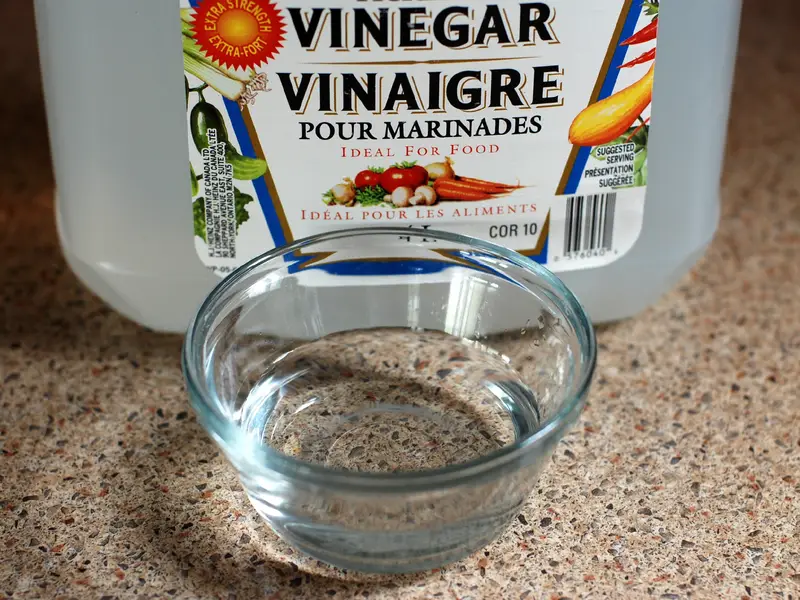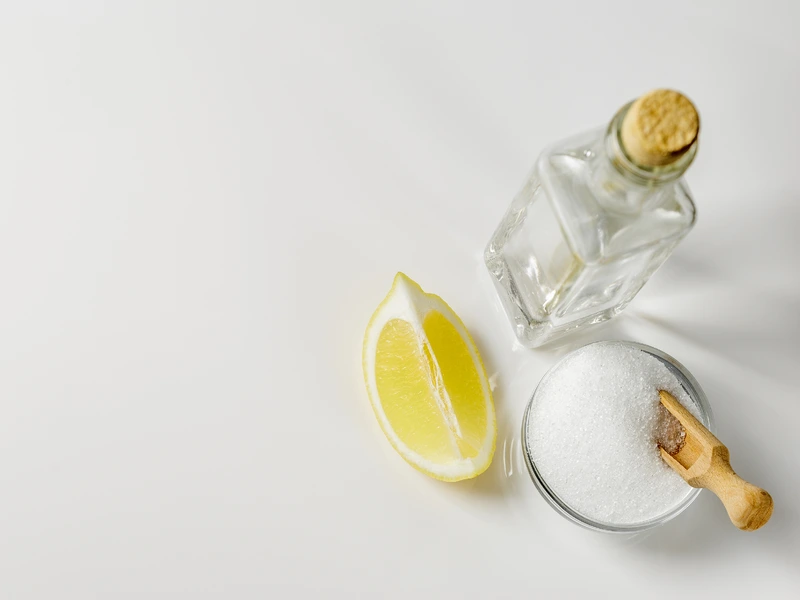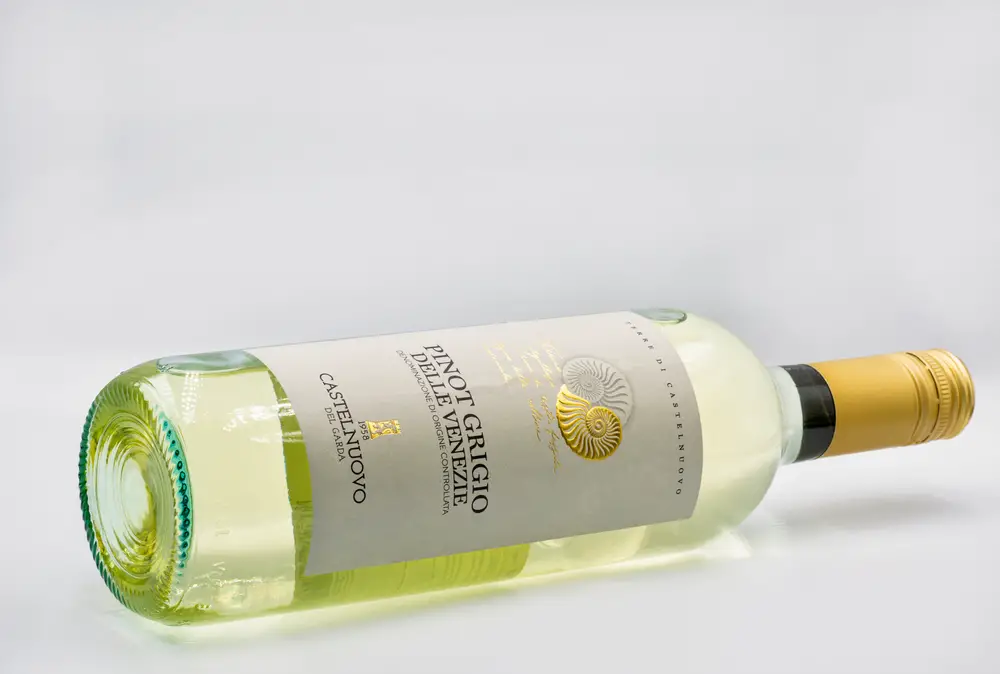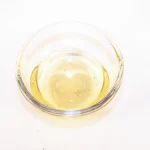Most households keep white vinegar in the cupboard. It can be used in the kitchen to clean and sanitize and is perfect for cleaning glass and other hard surfaces. White vinegar can also be used in food and is a direct ingredient of mustard and vinegar.
White wine vinegar is another common kitchen item. Although it is similar to white vinegar, they are not exactly alike.
For example, you could use white wine vinegar to clean the windows, but white vinegar is cheaper. However, they do have similar flavors and other characteristics.
You can also substitute one for the other in some recipes, not others.
For example, you could probably clean your windows with white wine vinegar. Still, it would probably be best to save it for your next batch of salad dressing or marinade.
Please continue reading to learn how each of these kinds of vinegar is made and their other attributes.

What Makes White Wine Vinegar Different from White Vinegar?
The most significant difference is that white wine vinegar is made by fermenting wine. In contrast, white vinegar is made from water and acetic acid, with a dilution of five to ten percent acid to water.
How Is Each Vinegar Made?
White wine vinegar, another common ingredient found in household pantries, is made from grapes. On the other hand, white vinegar is made from water and acetic acid.
White Wine Vinegar
Turning white wine into white wine vinegar can take up to six months.
The process takes white wine, poured into large vats called acetators, which exposes the wine to oxygen. The byproduct of this exposure is acetic acid.
The resulting acetic acid has to be diluted (with water) to the proper level of acidity before bottling. White wine vinegar has a pH of 2.6 to 2.8.
Once the white wine vinegar is finished, the final product is bottled.
White Vinegar
White vinegar can be made by adding acetic acid to water properly. However, grain alcohol produces the best white vinegar.
White vinegar made from adding acetic acid to grain alcohol, such as vodka, will produce white vinegar. The process can take from three weeks to six months or more.
Do These Two Kinds of Vinegar Look Similar?

White wine vinegar and white vinegar are clear.
The only way to tell the difference is by odor without a label. White vinegar has a sharper aroma than white wine vinegar.
White Wine Vinegar
White wine vinegar can have a light golden cast and has cloudiness. This is due to its origins in the grape.
Depending on the grape used to make a particular vinegar, white wine vinegar can range from transparent as white vinegar, up to a golden hue.
White Vinegar
White vinegar is as clear as water and has a sharp odor.
It was given the name white vinegar because it is clear, and most other vinegar is not.
Do They Taste The Same?
The odor of the two is slightly different. White wine vinegar has a milder smell than white vinegar, with a sharp aroma.
However, the intense flavor is quite evident and is why one cannot equally substitute them for cooking or cleaning.
White Wine Vinegar
Although very acidic, white wine vinegar has a softer, mellower flavor than white vinegar.
Therefore, just as white vinegar cannot be substituted in some recipes, white wine vinegar is not the best all-purpose cleaner.
White Vinegar
White vinegar is sour and is the base flavor in pickles, mustard, ketchup, and many sauces.
It is sharper than white wine vinegar and cannot be substituted in some recipes.
Do They Smell The Same?
White wine vinegar and white vinegar have similar aromas.
A trained nose can tell one from the other, and the sharp sour odor of white vinegar is very aromatic.
White Wine Vinegar
Since it is derived from grapes, the fruitiness of its origins is evident in the aroma of white wine vinegar.
Depending on the source and brand of the vinegar, it will have different levels of fruitiness and acidity.
White Vinegar
The odor of white vinegar is sharp, sour and very intense.
However, the acidity of white vinegar makes it suitable for some foods and some cleaning uses.
What Are These Two Vinegars Usually Used For?

White vinegar and white wine vinegar have many uses around the home.
They can also be used for cross purposes, which makes them versatile.
White Wine Vinegar
Of the two kinds of vinegar, white wine vinegar is used primarily in the kitchen.
White wine vinegar has many culinary uses, whether an ingredient in a dish or a standalone condiment added to a recipe.
The more common uses for white wine vinegar include:
- White wine vinegar can be used as a base for dressings and sauces.
- It can be used to clean hard surfaces. However, it doesn’t work as well as white vinegar for this purpose.
- White wine vinegar can repel ants by soaking pieces of cotton in it and placing the cotton near where you see the ants.
- White wine vinegar can be added to the water in which broccoli is cooked to reduce swelling in the intestines.
Finally, white wine vinegar will remove the smell of onions from your hands.
Related: You can utilize old sour wine for cleaning purposes.
White Vinegar
As the most versatile of the two products, white vinegar has many uses around the home.
Some of its benefits are as follows:
- When blended with baking soda, it can be used as a leavening agent for baking or cleaning a sink drain.
- Use white vinegar to tenderize seafood and meats, and add it to marinades.
- White vinegar can be used to remove stains from color-safe fabrics.
- Use white vinegar to remove the water scale from pots, kettles, and plumbing fixtures.
- White wine vinegar can be used for the base of salad dressing.
- And the most popular use of all for white vinegar is using it to get the windows in your home or car sparkling clean.
Do White Wine Vinegar and White Vinegar Have Any Health Benefits?
Many of the foods we eat have no redeeming qualities other than that they supply calories.
However, other food ingredients offer extra benefits, and white wine vinegar and white vinegar are two products.
White Wine Vinegar
Due to its origins and the fermentation method, white wine vinegar is highly concentrated with trace minerals, including iron, magnesium, phosphorus, and potassium.
A few of the benefits of white wine vinegar are:
- White wine vinegar slows the digestive process, making one feel full sooner. Therefore, you are more likely to consume fewer calories.
- White wine vinegar adds no cholesterol to dressings but a lot of flavor.
- Because white wine vinegar is made from grapes, it has the same grape polyphenols as wine, which are natural antioxidants.
White Vinegar
A lot has been written about the benefits of white vinegar, and here are a few that are notable:
- White vinegar has anti-microbial attributes that help keep fungi, warts, and ear infections away.
- White vinegar can slow digestion, making you feel full, thereby staying satisfied longer and making you less prone to snack.
- The most notable health benefit of white vinegar is its ability to moderate insulin levels and blood sugar.
- White vinegar can help lower cholesterol and your weight.
- White vinegar has antibacterial qualities.
- White vinegar can help with a dry, itchy scalp.
Can I Substitute White Wine Vinegar For White Vinegar?

Due to the different flavor profiles, white wine vinegar and white vinegar cannot be equally substituted.
If you must use white vinegar instead of white wine vinegar, add a few teaspoons of sugar to the vinegar to remove some of its acidity.
White Wine Vinegar Substitute
Suppose the dish you are making calls for white wine vinegar, and you don’t have any in stock.
In that case, you have options other than adding sugar to white vinegar, and the following are a few of them:
- Apple cider vinegar: is slightly more acidic than white wine vinegar; however, it has the fruitiness that white vinegar lacks.
- Red wine vinegar: is made through the same process as white wine vinegar and is a suitable replacement in your recipes.
- White rice vinegar: is made from fermented rice and is milder and sweeter than white wine vinegar, which will impart a different flavor to your recipes. If you don’t have any on hand, there are a number of suitable replacements. Popular options of rice wine include Shaoxing wine and Sake.
White Vinegar Substitute
If your cupboard is lacking white vinegar, the following are suitable replacements:
- Regular or fortified table wine: can be used to replace white wine vinegar in recipes.
- Lemon or lime juice: works perfectly fine as a substitute for vinegar when baking. You will need a third of a cup of lemon juice to replace a quarter cup of vinegar.
- Apple cider vinegar: has a mellower, fruitier flavor than white wine vinegar but can be used as a substitute in your recipes.
- Tamarind paste: has the same mellow flavors of white wine vinegar and is often used in place of vinegar.
White Wine Vinegar vs White Vinegar – Now You Know The Difference
The differences between white wine vinegar and white vinegar are subtle. Yet, they are different enough that the two items cannot be used interchangeably without minor recipe adjustments.
As noted, other food items can be used for both kinds of vinegar, and apple cider vinegar can be used as a replacement for both white wine vinegar and white vinegar.
Now that you know what you can use as a substitute for white wine vinegar and white vinegar, you can ensure you have the items on hand.
Whether you need them today or next week, things like lemon juice and apple cider vinegar will give you more options when cooking.
So, be sure you have one or two of the substitute items on hand, or this trick won’t work.
- Shrimp Cocktail (and More) Wine Pairing Guide - 09/06/2022
- What Wine Serving Sizes Look Like: Standard Size and More - 08/06/2022
- How Much Sugar is in Wine: Glass and Bottle Sugar Content - 08/06/2022






